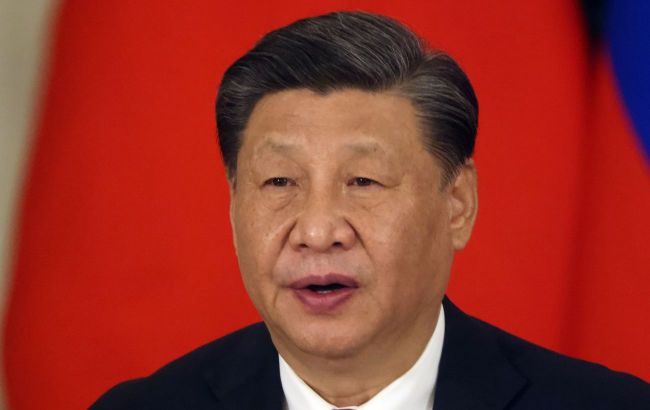China seeks to ease US export controls on AI chips
 Photo: PRC head Xi Jinping (Getty Images)
Photo: PRC head Xi Jinping (Getty Images)
China demands that the United States ease export restrictions on high-speed memory chips (HBM), which are a key component for creating artificial intelligence chips, according to the Financial Times.
According to the agency’s sources, this has become one of the central topics of trade negotiations ahead of a possible summit between President Donald Trump and People's Republic of China (PRC) head Xi Jinping.
In recent months, US Treasury Secretary Scott Bessent has held three rounds of talks with the Chinese delegation headed by Vice Premier He Lifeng.
The Chinese have repeatedly emphasized the need to ease restrictions on the export of HBM.
The deadline for reaching a trade agreement between the United States and China expires on August 12. According to Commerce Secretary Howard Latnick, the Trump administration is likely to extend the moratorium on tariff increases for another 90 days.
Since 2022, the Biden administration has introduced tough measures aimed at curbing China’s ability to produce and purchase advanced chips for artificial intelligence.
In particular, the export ban on HBM was introduced in 2024 to restrict Huawei and SMIC, the largest Chinese companies in this field.
China’s concerns
Recently, the United States approved export licenses for the H20 chip, developed by Nvidia specifically for the Chinese market. However, China is significantly more concerned about the control over HBM, which substantially limits the development of its own AI chips.
According to informed sources, the Biden administration recognizes that export control over HBM is the most effective barrier to large-scale production of AI chips in China.
In addition, China uses HBM for packaging the logical components of chips that it receives from Taiwan’s TSMC, which may violate American law.
The Chinese Embassy in the US calls export control an “abuse” that violates the rights of Chinese companies.
Strengthening control
At the same time, in Washington, concerns are growing that Trump may ease control as part of a trade agreement, which has sparked criticism over Nvidia, which sells gaming chips that are used for AI applications in China.
Some Chinese companies advertise Nvidia 4090D and 5090D gaming chips for AI applications.
At the same time, Nvidia claims that its gaming products are not intended for AI and are sold in accordance with US law.
The head of the US House of Representatives Committee on China, John Moolenaar, called on Nvidia and the Department of Commerce to strengthen export control, given the scale of smuggling of advanced AI chips.
Tariffs on electronics imports to the US
At the beginning of April, Trump imposed tariffs on imports of goods from more than 180 countries. In particular, tariffs were introduced on imports to the US of computers, chips, and semiconductors.
However, it turned out that because of such tariffs, the cost of iPhones could rise by 30–40%, since Apple purchases components and manufactures products in China, Taiwan, and other Asian countries.
In response, Trump said that iPhone production could be moved to the United States.
Subsequently, the president canceled tariffs on the import of smartphones and computers. However, the government announced plans to set new tariffs on critical technological products from China within two months.
In addition, on August 7, President Donald Trump announced his intention to introduce 100% tariffs on all microchips and semiconductors imported into the United States from other countries around the world.

